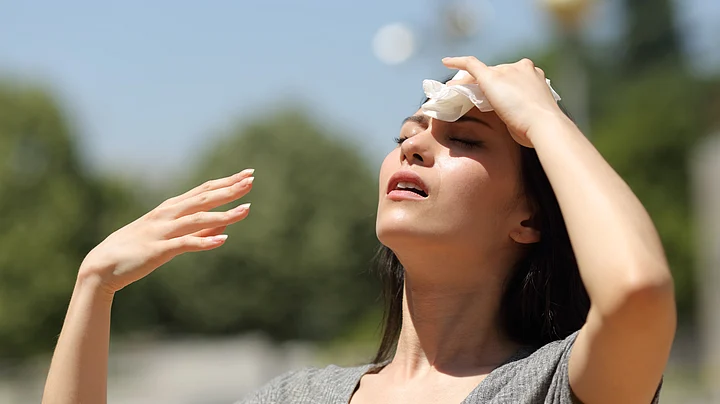It's only March, and parts of the country are already seeing temperatures soar beyond normal.
In a recent media briefing, Health Secretary Rajesh Bhushan emphasised the health concerns associated with the uncharacteristically high temperatures being reported in several parts of the country.
The Health Ministry has also put out a list of Dos and Dont's to help minimise the impact of the heat wave, and prevent any fatal outcomes due to a heat stroke.
How can you protect yourself from the heat? What can be done in case of sunstroke? Who is vulnerable to its effects? FIT answers your FAQs.
What is the Health Ministry doing to tackle the situation?
The Health Ministry has passed an order for surveillance on heat related diseases under the National Programme on Climate Change Human Health (NPCCHH). This is to be conducted for all states and districts on the Integrated Health Information Platform (IHIP).
Along with this, Health Secretary Rajesh Bhushan reiterated some safety and preventive measures that can help people protect themselves from soaring temperatures.
What are some things you can do to protect yourself from the heat?
The Health Ministry recommends that you keep yourself hydrated, and continue to drink water even if one is not feeling thirsty.
Apart from water, some other hydrating drinks that are recommended are,
Oral rehydration salts (ORS)
Buttermilk
lemon water
Fresh juices
However, some drinks can also be dehydrating. The Ministry suggests steering clear of,
Tea
Carbonated drinks
Alcoholic beverages
Can choice of clothing make a difference?
On the list of Dos, the ministry recommended the use of:
Goggles
Umbrellas
Hats
Lightweight, loose, and breathable clothes.
Can I still do physical activity?
Yes, however, it is recommended that you don't engage in physical activities outdoors in the daytime.
Some other Don'ts on the Health Ministry's guidelines are.
Avoid stepping out between the hours of noon to 3pm
Avoid excessive exposure to sunlight
What kind of foods should I have?
The consumption of high-protein and stale foods must be avoided according to the ministry.
Instead, have more of hydrating foods like fresh fruits such as watermelons, lemon, orange, and cucumber.
The guideline also says don't cook during the peak afternoon hours
Which population is the most vulnerable to the heat?
Based on the advisory released, vulnerable populations include:
Infants or young children
Labourers engaging in outdoor work
Individuals with physical or mental illnesses
Individuals with heart diseases or high blood pressure
People coming from a cooler to hotter climate
What precautions should be taken after going from a cooler to hotter environment?
On shifting from a cooler to a hotter environment, the body requires time to acclimatise.
A period of one week should be taken as a buffer before going out in the sun to allow the body to get gradually exposed to the heat.
Throughout this period, a large amount of water intake is encouraged to keep the body hydrated.
What steps should be taken in case of a sun stroke?
In case of a heat stroke, the main focus should be on bringing the body temperature back to normal and rehydrating the body. This can be done by:
Taking the affected person to a cool place
Keeping them under shade.
Washing the person’s body with a wet cloth
Pouring normal temperature water on the head.
Once stable, the individual should be taken to the nearest hospital since heat strokes can be fatal.
1. What are the symptoms of a heat stroke?
The symptoms of heat stroke include:
Dizziness
Nausea/vomiting
Rapid breathing
Increased heart rate
Headaches
Extreme thirst
Decreased urination

